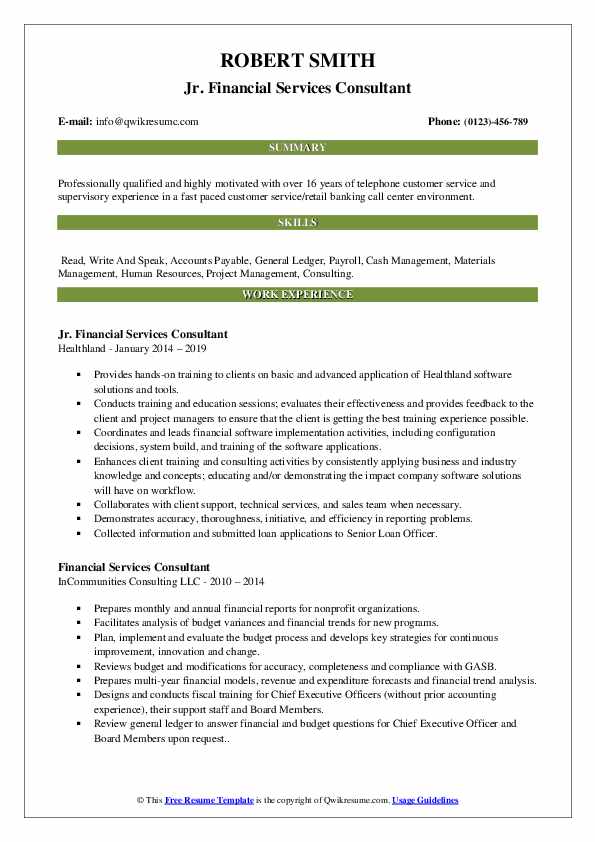
A company formation is the process of creating and incorporating a company. This process is also known to be called company registration. The Republic of Ireland also uses company formation. There are many types of business formations, including partnerships, corporations and sole proprietorships. The one that suits your industry and your needs best will be chosen.
Corporations
A corporation is a legal entity that allows owners to hold stock in the company. These shares can be sold or transferred between owners. While shareholders are not personally liable for the company's assets and liabilities, they do have a duty of care. They could be held liable if they fail to meet this obligation. Corporations are beneficial for businesses seeking to raise capital and also to attract employees. They can be a great choice for medium and high risk enterprises.
Corporations are legal entities that can enter into contracts, sue another party, own assets and remit federal, state, and local taxes. They can also borrow money from financial institution. The state where you wish to start a corporation must be notified. Additional paperwork may be required if you intend to do business outside of your state.
Partnerships
A partnership is a type of business shared by two or more individuals. While partnerships are not legal business entities they can be registered with the state to provide limited liability protection. In addition to this, there are also a number of licensing requirements. For example, a partnership must obtain an employee identification number from the IRS. It might also be required for a building or zone permit. Additionally, partnerships may need to pay additional taxes like self-employment taxes or employer withholdings.

Partnerships are often easier to set-up than other types. They are less subject to corporate regulations, so they can be more tax-friendly. But they might not be the best option for all business types. Partnerships are most common for professional groups.
LLCs
An LLC can be formed in many ways. First, you need to complete the Articles of Organization. It designates the county in which the company is registered. New York County typically covers New York City's boroughs. But, there are cities with both a County and a Borough. Therefore, it is crucial to choose the right county for you company. The next step involves naming a Secretary to serve as the LLC’s agent for service. This means the Secretary is the person who will receive papers acquiring the LLC's jurisdiction.
You will need a state certificate to verify that the LLC has been officially registered in the state. This certificate is important for getting your business tax ID number and setting up a bank account for it. An operating agreement should be prepared. It contains all the financial and legal details about your business. The agreement may include information such as who is allowed to leave the company and who contributes capital. Be sure to include all information, including contact information and names of members.
Sole proprietorships
For small-time entrepreneurs, sole proprietorships can be one of the easiest forms of business organization. This type of business structure gives the owner total control over the company. Additionally, it is inexpensive, and the owner isn't subject to the meetings and formalities of a corporation or limited liability company.
Sole proprietorships are simple to establish and dismantle. Most small businesses begin as sole proprietorships, and then transition to limited liability entities (LLCs) or corporations. A sole proprietorship has the downside that it does not provide protection from the government and the owner is responsible for all the obligations and liabilities. Solo proprietorships can be very affordable and simple to start. This makes them attractive for people with low budgets.

Limited partnerships
When forming a business, limited partnerships can be a good option. They protect general partners and will not make them personally responsible for any business debts. Additionally, limited partners can contribute startup capital. However, the general partner takes the greater risk for the business's future success. A limited partnership requires two or more partners, and the partnership must be registered with the Secretary of State's office. To start a business, the partners must fill out a formal document called a "certificate of limited partnership" that includes the business name, business agent, and the name of the general partner. Next, you will need to create an internal partnership agreement. This will outline the roles and responsibilities for each partner as well as the profits and losses of the limited partnership.
A limited partnership also has the advantage of being tax-efficient. Limited partners do not have to pay self-employment tax on the profits they make. General partners, however, are required to. This tax savings is very useful because limited partners aren't involved in day-today management of a business.
FAQ
Are consulting incomes subject to tax?
Yes, tax will be payable on any consultancy profits. The amount you earn depends on your annual income.
If you're self employed, you can deduct expenses beyond your salary.
However, you cannot deduct interest payments from loans, vehicle repairs, or the cost for equipment.
You cannot claim back less than PS10,000 in a given year.
Even if you earn more than the threshold, you could still be taxed depending upon whether you are classified as a contractor and/or employee.
Employees are generally taxed through PAYE (pay as you earn) and contractors through VAT.
Which industries employ consultants
There are many different types. Many consultants specialize in a particular type of business. Others may be more focused on multiple types.
Some consultants work only for private companies, while others represent large corporations.
Some consultants are available to help businesses around the world.
What are the benefits of consulting?
As a consultant, you can usually choose when you work and what you work on.
This allows you to work wherever and whenever you want.
This allows you to easily change your mind and not worry about losing your money.
Finally, you are able to manage your income and make your own schedule.
Why should consultants be hired?
There are many reasons why you might need to hire consultants:
-
A specific project or problem may be a challenge for your company.
-
You want to increase your skills and learn something new
-
It is important to work with an expert on a subject area
-
There is no one else available to handle the task
-
You feel overwhelmed with all the information you see and don’t know where it is.
-
You can't afford full-time employment
Referrals are the best way for you to find a qualified consultant. Ask your network if they are aware of any credible consultants. If you already know someone who works as a consultant, ask him/her for recommendations.
You can use online directories such as LinkedIn to find consultants in your local area.
What skills is required to consult?
Consultants should be able to communicate effectively and have excellent analytical skills. This is essential because you will be working on projects that you don't know the details of. You need to be able to manage people quickly and solve problems efficiently.
Excellent communication skills are also essential. Most clients expect to hear back within 24 hours. If they don't hear anything, it is likely that they aren't interested in you. It's crucial to keep them informed and make sure they understand everything.
Is it possible for a consulting business to be run from home?
Absolutely! Many consultants do this already.
Freelancers often work remotely through tools like Skype and Trello, Basecamp, Basecamp, Dropbox, and Slack. Many freelancers set up their own office space to avoid missing out on company perks.
Some freelancers prefer working in cafes and libraries over traditional offices.
And others choose to work from home because they enjoy being surrounded by their children.
Of course, working from home has its pros and cons. However, if you love what you do, it is worth considering.
Statistics
- Over 62% of consultants were dissatisfied with their former jobs before starting their consulting business. (consultingsuccess.com)
- According to statistics from the ONS, the UK has around 300,000 consultants, of which around 63,000 professionals work as management consultants. (consultancy.uk)
- On average, your program increases the sales team's performance by 33%. (consultingsuccess.com)
- WHY choose me: Why your ideal client should choose you (ex: 10 years of experience and 6-week program has helped over 20 clients boost their sales by an average of 33% in 6 months). (consultingsuccess.com)
- According to IBISWorld, revenues in the consulting industry will exceed $261 billion in 2020. (nerdwallet.com)
External Links
How To
What should I do to get started with a consulting business?
It's a great way for you to make money online by starting a consulting company. You don't have to have any business experience. To start your own consulting business, you can build a site. To promote your services, you will need to create a website.
You can use these tools to put together a plan for marketing that includes:
-
Blog Content Creation
-
Establishing connections (contacts)
-
Generating Leads (lead generation forms).
-
Selling products (eCommerce websites)
After you have developed your marketing strategy, it's time to find clients willing to pay for your services. Some prefer to connect with people through networking events. Others prefer to use online resources like Craigslist and Kijiji. The decision is up to each individual.
Once you've found new clients, you'll want to discuss terms and payment options. You can discuss hourly rates, retainer agreements, flat fees, and other options. So that you are able to communicate clearly during the entire process, it is important to understand what you expect from a client before you accept them.
Hourly agreements are the most common contract type for consultancy services. In this case, you agree to provide certain services at a fixed rate each month or week. Based on the service you provide, you might be able to negotiate a discount based on the length of your contract. Before you sign a contract, ensure you understand everything.
Next, create invoices and then send them to clients. Invoicing is one thing that looks simple until it's actually done. There are many options for invoices to be sent to your clients. Some people prefer to email their invoices directly, while others prefer to mail them hard copies. No matter which method you choose to use, it is important that it works for you.
After you've created your invoices, you can collect payments. Most people prefer PayPal because it is easy to use and offers various payment options. You can also use Square Cash, Square Cash (Google Wallet), Square Cash, Square Cash, Apple Pay and Venmo as payment processors.
Once you're ready to begin collecting payments, you'll want to set up bank accounts. Separate checking and savings accounts allow you to keep track of income and expenses separately. Automated transfers into your bank account are a great way to pay bills.
When you start a consultancy business, it may seem overwhelming, but once you learn how to do it correctly, it becomes second nature. For more information on starting a consultancy business, check out our blog post here.
You can make extra money by starting a consulting company without worrying about staff. Consultants can work remotely so they don't have the hassle of dealing with office politics and long working hours. Since you are not tied down by regular working hours, you have more flexibility than a traditional employee.